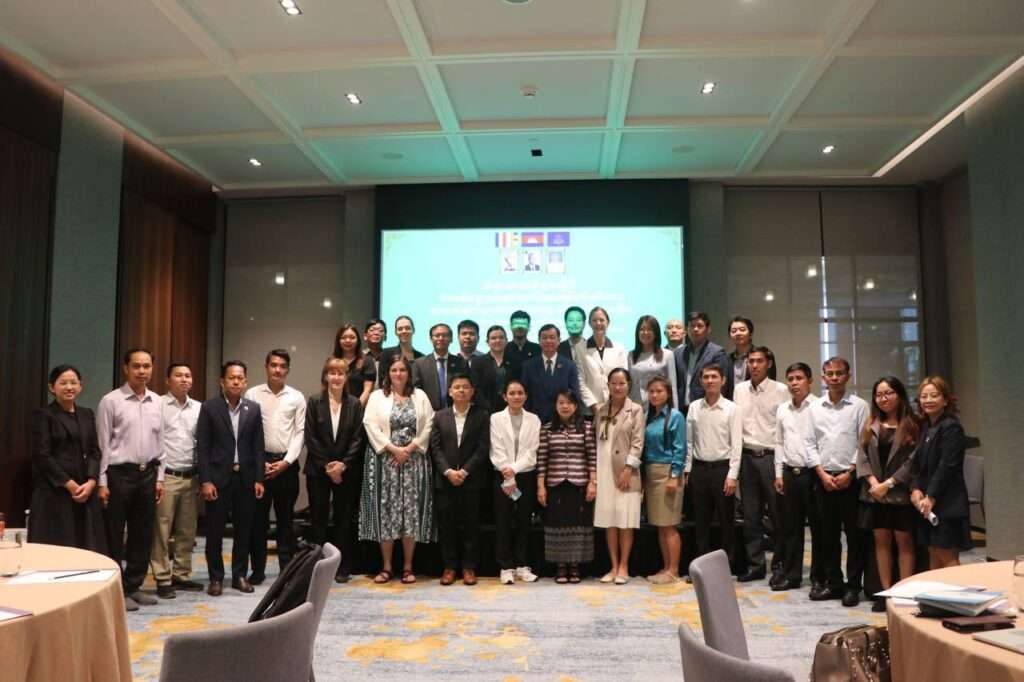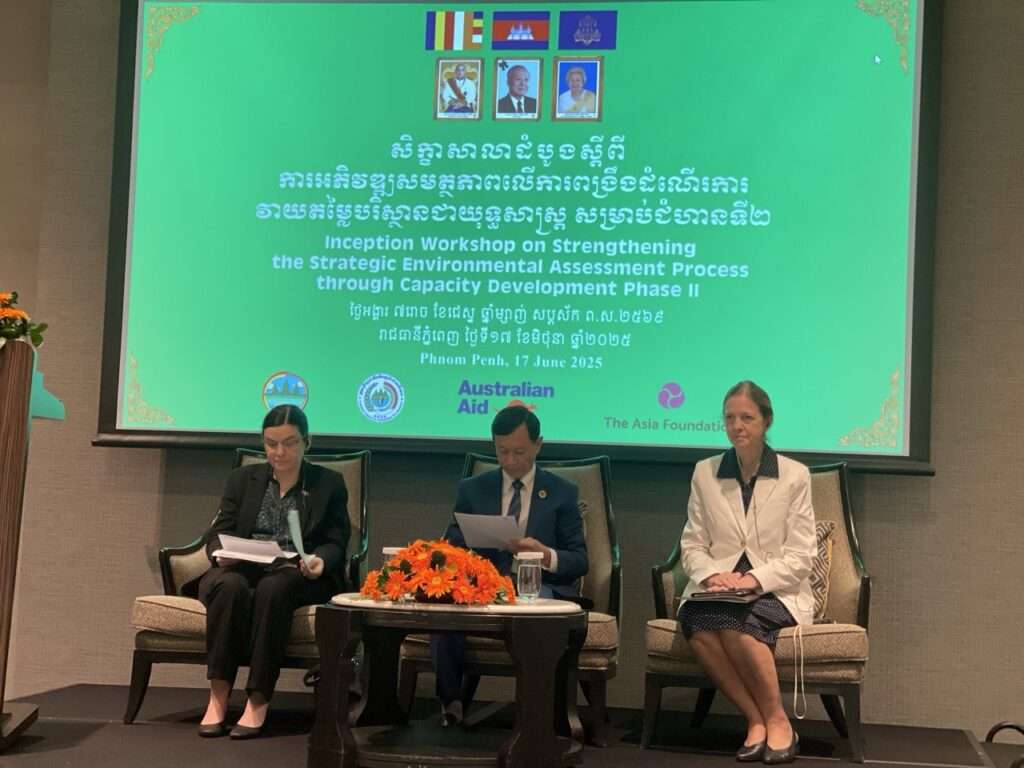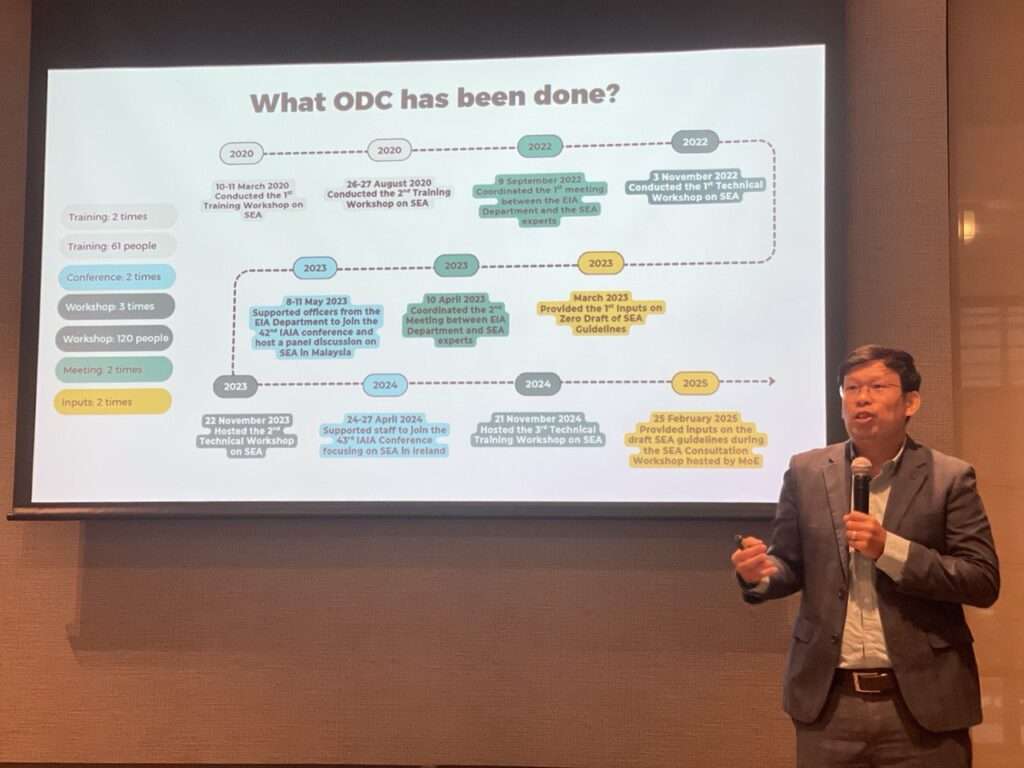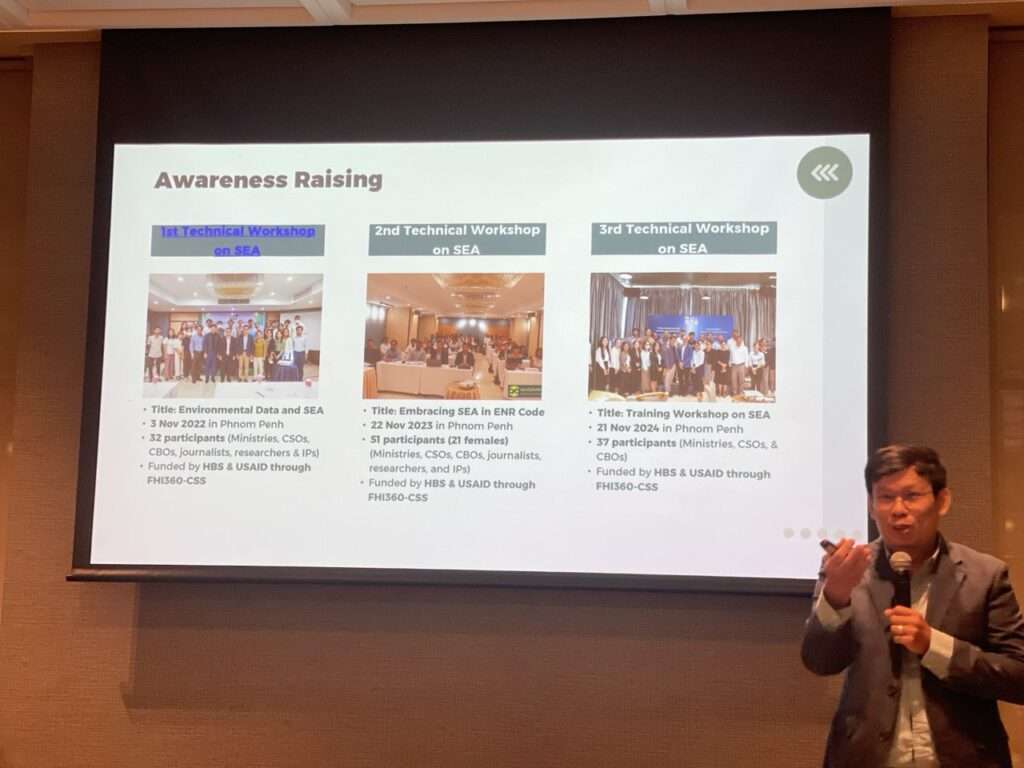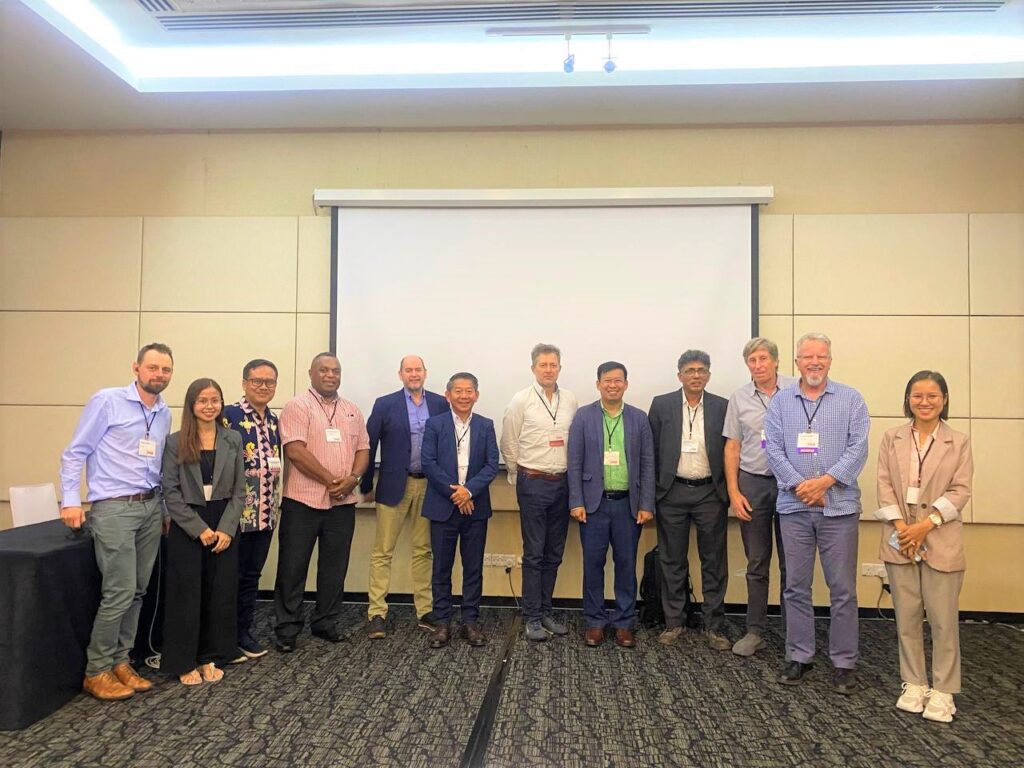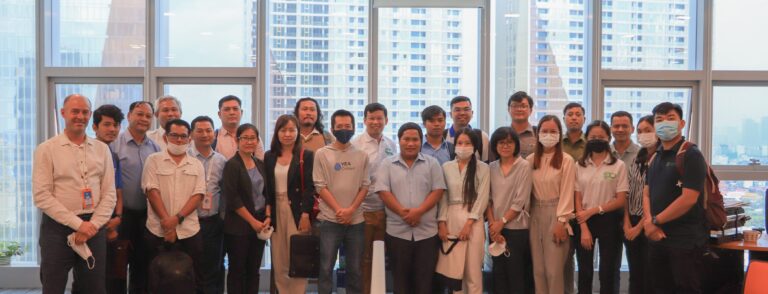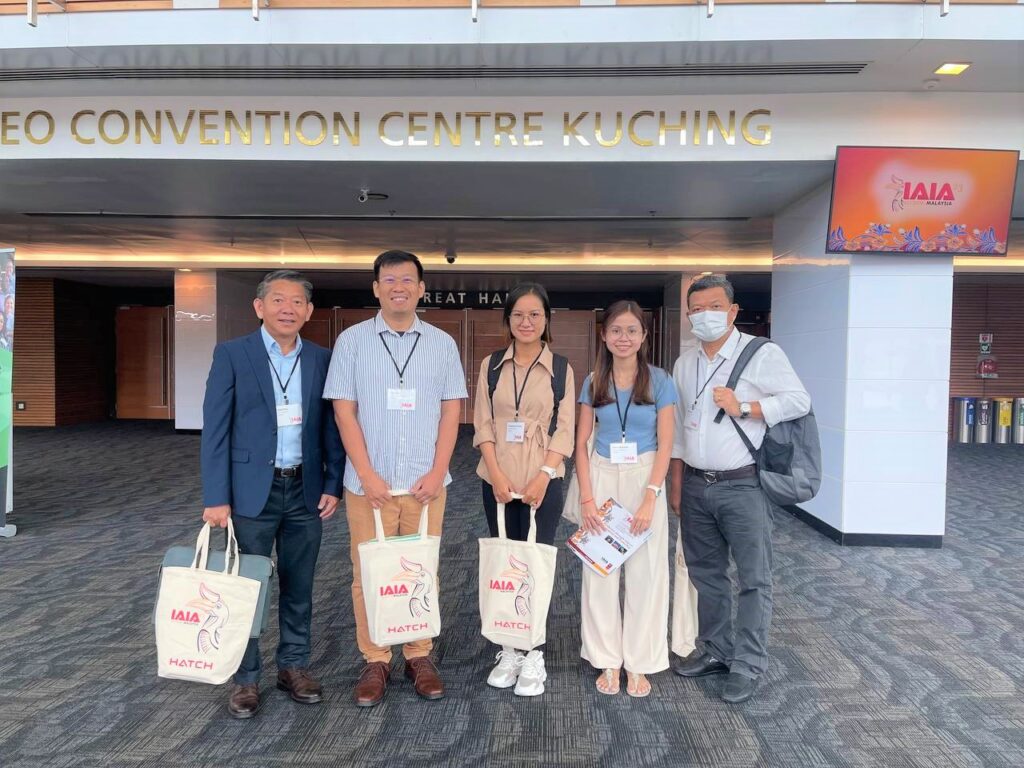On 17 June 2025, Open Development Cambodia (ODC) participated and served as speakers at the Inception Workshop on Phase II of Strengthening the Strategic Environmental Assessment (SEA) Process through Capacity Development, a collaboration between the Ministry of Environment (MoE) and The Asia Foundation (TAF). The workshop was attended by approximately 40 participants from the Ministry of Environment (MoE), Ministry of Mines and Energy (MME), Ministry of Tourism (MoT), Ministry of Agriculture, Forestry and Fisheries (MAFF), Council for the Development of Cambodia (CDC), Ministry of Economy and Finance (MEF), Ministry of Public Works and Transport (MPWT), Ministry of Land Management, Urban Planning and Construction (MLMUPC), Ministry of Planning (MoP), Cambodia National Mekong River Committee (CNMC), Ministry of Water Resources and Meteorology (MoWRAM), Ministry of Posts and Telecommunications (MPTC), Global Green Growth Institute (GGGI), United Nations Development Programme (UNDP), World Wildlife Fund for Nature (WWF), and the Embassy of Australia.
The workshop aims to (1) identify opportunities and challenges in implementing SEA in Cambodia, (2) brainstorm ideas related to the preparation of a sub-decree on SEA as stipulated in the 2023 Environment and Natural Resources (ENR) Code to support the implementation of SEA, and (3) expand capacity-building opportunities on SEA for national and sub-national officials.
In 2025, MoE and TAF re-engaged to continue the SEA initiatives, beginning with a senior management meeting to discuss key issues and further advance the implementation of SEA in Cambodia. A priority task is to develop and promote the integration of SEA into policies, strategic plans, and action programs across relevant sectors. This effort aims to achieve sustainable development and support the implementation of the Pentagonal Strategy Phase I of the Royal Government of Cambodia of the Seventh Legislature of the National Assembly. SEA plays an important role in integrating environmental issues into the formulation of policies, strategic plans, and action programs in key sectors outlined in the code.
H.E. Dr. Chuop Paris, Secretary of State of the MoE, presided over the opening of the workshop. On that occasion, H.E. emphasized that the implementation of the activities for the second phase is to strengthen broader cooperation on the preparation of documents for SEA covering the seven priority sectors as defined in the Nationally Determined Contributions 3.0 (NDC 3.0) document to ensure sustainable development, focusing on the three pillars: economy, society, and environment. The preparation of SEA is very important for relevant ministries and competent institutions to put forward their sectoral strategic plans to jointly achieve sustainable development and ensure a good environment that takes into account cleanliness. H.E. also emphasized that the workshop should consider preparing legal documents on SEA as stipulated in the ENR Code, such as sub-decrees or guidelines on SEA in each sector. It is also worth noting that the collaboration for Phase 1 has achieved positive results, including the completion of a study on the scope of SEA in Cambodia, capacity building for civil servants, and training of trainers in SEA.
The workshop presented the current status of SEA in Cambodia, including the background of SEA in Cambodia, the latest developments, and the plans for 2025-2027. Currently, MoE is preparing the General Guidelines on SEA in Cambodia and the Guidelines on SEA for the Sand Mining Business in Cambodia. In 2025-2027, MoE will prepare a sub-decree on the SEA procedure, the SEA framework analysis, and the training of trainers (ToT).
Mr. Thy Try, Executive Director and Editor-in-Chief of Open Development Cambodia (ODC), presented an overview of SEA as well as previous SEA reports. At the same time, he also presented the work that ODC has done about SEA in Cambodia, such as training, workshops, consultation meetings, conferences, and providing input to the SEA Guidelines. ODC has been working on SEA since 2020 until now. ODC collaborated with MoE and the Non-Timber Forest Products Exchange Programme (NTFP-EP Cambodia), supported by the Netherlands Committee for IUCN, to organize two training courses with approximately 61 participants from relevant departments and civil society. ODC also participated in two overseas conferences and discussions on SEA in the Mekong countries. To promote broader understanding, ODC organized three workshops with a total of 120 participants from relevant ministries, civil society, journalists, and indigenous communities, supported by Heinrich Böll Stiftung (HBS) Cambodia and FHI360-CSS. ODC coordinated with foreign experts to provide input to the draft General Guidelines on SEA in Cambodia and the Guidelines on SEA for the Sand Mining Business in Cambodia.
It should be noted that ODC is also committed to collaborating and actively participating in activities related to SEA in Cambodia.
